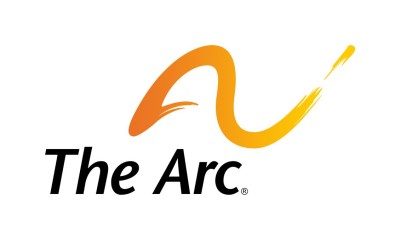By Robin Shaffert, Senior Executive Officer, Individual & Family Support, The Arc
 You may have heard about supported decision-making and wonder what it is and how it applies to your practice. Supported decision-making is an effort to promote the rights of people with disabilities to make their own decisions by developing the skills and support they need to make these daily and major life decisions.
You may have heard about supported decision-making and wonder what it is and how it applies to your practice. Supported decision-making is an effort to promote the rights of people with disabilities to make their own decisions by developing the skills and support they need to make these daily and major life decisions.
The Arc and other advocates for people with disabilities are working to make sure that decisions made by people with disabilities are respected by our health care, financial and educational systems. Advocates are also working to raise the level of recognition that decisions made by people with disabilities – with or without support – are valid. The Arc and other advocates are also raising awareness of the resources available to provide decision-making supports and to make guardianship what it is supposed to be ─ the option of last resort.
In many ways, supported decision-making is nothing new. The majority of people with intellectual and/or developmental disabilities (I/DD) can manage their own affairs with informal assistance and guidance from trusted family members and friends. Yet, all too often, as a young person with disabilities approaches the age of 18, a family feels pressure to establish guardianship. This pressure may be overt, with parents being told by professionals that they should obtain guardianship to assist the person with important life decisions, such as medical and housing issues. It may also be more indirect when professionals refuse to act on decisions made by people with disabilities.
Attorneys who advise on special needs planning play a critical role in encouraging supported decision-making and promoting self-determination. If a family seeks to obtain guardianship over a relative with a disability, attorneys can guide them to think first about what decision-making supports could be used to help the person making his or her own decisions. Even if guardianship is deemed necessary, attorneys can work with the families to limit the guardianship and to incorporate supported decision-making principles within the guardianship. Special Needs Alliance (SNA) member attorneys are often called upon to help families sort through the options.
There are many informal and formal ways that people with disabilities can get support and advice in making decisions. The simplest way is by seeking advice from family members and trusted friends. Families can work with their relative with a disability to build a team that can provide support and guidance in making decisions. The person may want to ask different people for guidance on different types of decisions. At other times, it may be helpful to hear from more than one supporter before making a big decision such as where to live. More formal relationships can also be established to provide support. A supporter can be named as a representative payee, an authorized health care agent or be provided a power of attorney.
Family members can also support people with disabilities by working with them to develop decision-making skills. An important first step is to provide the person with a disability with the opportunity to make everyday decisions. Another important step is to work with the person to build financial literacy and other skills they will need to make important decisions. Supporters can talk with the person about the questions they ask themselves when making decisions. They can discuss risk-taking and consequences, and they can explore whether there are ways that assistive technology can help support decision-making.
For more information on supported decision-making, please visit The Arc’s Center for Future Planning website. You may also be interested in listening to the center’s recent webinar on supported decision-making.
About this Article: We hope you find this article informative, but it is not legal advice. You should consult your own attorney, who can review your specific situation and account for variations in state law and local practices. Laws and regulations are constantly changing, so the longer it has been since an article was written, the greater the likelihood that the article might be out of date. SNA members focus on this complex, evolving area of law. To locate a member in your state, visit Find an Attorney.
Requirements for Reproducing this Article: The above article may be reprinted only if it appears unmodified, including both the author description above the title and the “About this Article” paragraph immediately following the article, accompanied by the following statement: “Reprinted with permission of the Special Needs Alliance – www.specialneedsalliance.org

I have a17 years old kid with learning disabilities
Going to a special school but he is in the high school diploma and he
Do not know how to read and write, plus the school are not paying good attention to the kids because at this none public school the kids easily can get drugs and at the IEP I brought this issue they completely ignored me my son was able to get marihuana and the school said that is normal, can I sue the school for negligence and try to get a better education for my son and at least he can learn how to read and write
I’d suggest that you contact a Special Needs Alliance member attorney directly. If you go to https://specialneedsalliance.org/find-an-attorney/ , you’ll find a directory that’s organized by state.